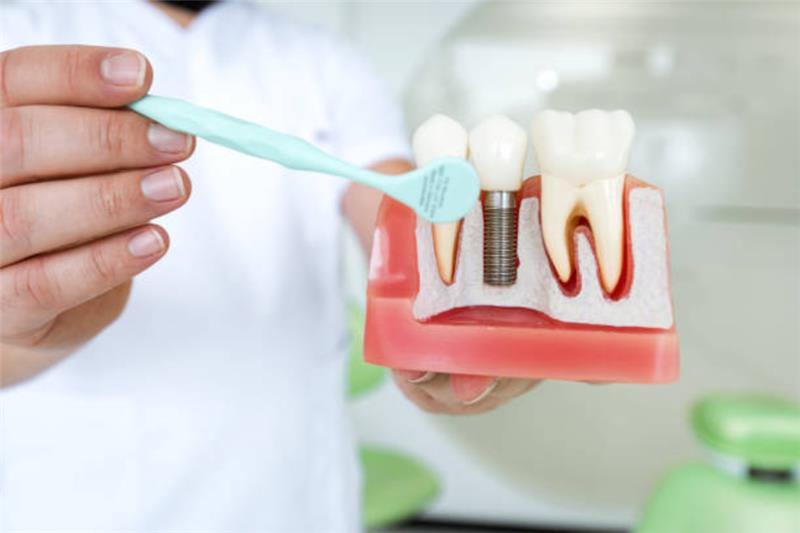
What Is a Dental Crown and When Is It Needed?
Definition of a Dental Crown
A dental crown is a custom-made cap designed to cover and restore a damaged or weakened tooth. It serves multiple purposes, including protection, structural restoration, and cosmetic enhancement. Many patients seek dental crown services to fully encase the visible part of the tooth, strengthening compromised teeth and restoring their natural appearance and function.
Crowns are often recommended for teeth that:
- Have severe decay beyond the repair of a filling
- Are broken or severely worn down
- Have undergone a root canal treatment
In addition to these restorative functions, crowns can also improve the aesthetics of teeth that are discolored or misshapen, providing a more uniform and attractive smile.
When Dentists Recommend a Crown
Dentists may recommend a crown for various situations, including:
- Cracked or Fractured Teeth: A crown can hold together parts of a cracked tooth and prevent further damage.
- Large Fillings or Weakened Teeth: When a tooth has a large filling and little natural structure remaining, a crown provides necessary protection and stability.
- Tooth Discoloration or Misshapen Teeth: Crowns can dramatically improve the appearance of teeth that are severely discolored, oddly shaped, or otherwise esthetically compromised.
Step-by-Step Guide to the Dental Crown Procedure
At Hamilton Dental Group, we understand how crucial it is for dental practices to clearly communicate procedures like dental crowns to build trust and attract new patients. Our proven dental marketing strategies help clinics effectively explain treatments like these, making patients feel confident and informed before their appointments.
Step 1 – Initial Dental Examination & Consultation
The first step in the dental crown process involves a comprehensive dental examination. During this visit:
- X-rays are taken to assess the condition of the tooth, surrounding roots, and bone structure.
- Your dentist will evaluate the extent of damage or decay and discuss your treatment options.
- You’ll review the goals for your dental restoration, including functional and cosmetic considerations.
Step 2 – Tooth Preparation
Once the decision to proceed with a crown is made:
- The dentist will remove any decay or damaged portions of the tooth.
- The tooth will then be reshaped to create an ideal base for the crown, ensuring a secure and natural-looking fit.
- In cases of significant tooth loss, a filling material may be used to build up the core of the tooth before reshaping.
Step 3 – Taking Dental Impressions
Accurate impressions are essential for creating a well-fitting crown.
- Traditional Impressions: This involves using dental putty or molds to capture the shape of your tooth.
- Digital Scanning: Many modern practices now use digital scanners, which are more comfortable for patients and provide highly precise 3D images.
- Impressions also help ensure the crown properly aligns with your bite for optimal comfort.
Step 4 – Placing a Temporary Crown
While your permanent crown is being fabricated:
- A temporary crown is placed to protect the prepared tooth.
- Temporary crowns are typically made of acrylic or resin and are designed for short-term use.
- Patients should avoid sticky or hard foods during this time to prevent dislodging the temporary crown.
Step 5 – Fabrication of the Permanent Crown
Once your impressions are sent to a dental laboratory:
- The lab work generally takes 1 to 2 weeks to complete.
- Technicians will carefully match the color, shape, and size of your crown to blend with surrounding teeth.
- The goal is a restoration that looks completely natural while restoring full function.
Step 6 – Final Crown Placement & Adjustment
At your final appointment:
- The temporary crown is removed, and the dentist checks the fit, shape, and color of the permanent crown.
- Adjustments are made as needed to ensure a comfortable bite.
- The crown is then permanently cemented in place, restoring both appearance and function.
Types of Crown Materials Available
Porcelain Crowns
Porcelain crowns are ideal for front teeth due to their excellent ability to mimic natural enamel. They provide a highly aesthetic, translucent appearance and are stain-resistant.
Ceramic and Zirconia Crowns
Ceramic and zirconia crowns offer a durable, metal-free solution that blends beautifully with natural teeth. Zirconia is especially strong and suitable for both front and back teeth.
Metal Crowns
Metal crowns, often made from gold or alloys, offer the highest durability and are ideal for back molars where strength is a priority. They typically last the longest but lack natural aesthetics.
Porcelain-Fused-to-Metal Crowns
Porcelain-fused-to-metal (PFM) crowns combine the strength of metal with the natural look of porcelain. They are versatile and can be used on both front and back teeth.
Same-Day Crowns (CEREC Technology)
Same-day crowns use CAD/CAM technology to create and place a crown in a single visit.
- Benefits: No need for temporary crowns or multiple appointments.
- Ideal Candidates: Those needing a quick restoration with minimal tooth damage.
Caring for Your New Dental Crown
Oral Hygiene Practices
Maintaining your crown requires daily oral care:
- Brush twice a day with fluoride toothpaste.
- Floss carefully around the crown, using tools like floss threaders if necessary.
- Avoid hard foods (e.g., ice, hard candies) that could damage the crown.
Managing Sensitivity After Placement
It’s common to experience mild sensitivity after a crown placement:
- Normal Symptoms: Mild sensitivity to temperature that subsides in a few days.
- When to Contact Your Dentist: Prolonged pain, discomfort when biting, or signs of infection warrant a dental visit.
Regular Dental Visits for Longevity
Regular checkups allow your dentist to:
- Check the crown’s condition.
- Ensure gum health.
- Detect early signs of wear or complications.
Crown Longevity: How Long Will Your Dental Crown Last?
Average Lifespan of Different Crown Types
On average, dental crowns last between 5 to 15 years, depending on material and care:
- Porcelain Crowns: 5–10 years
- Metal Crowns: 15+ years
- Zirconia Crowns: 10–15 years
- PFM Crowns: 10–15 years
Factors That Affect Crown Durability
Key factors that can impact crown longevity include:
- Diet: Frequent consumption of hard or sticky foods.
- Oral Habits: Teeth grinding (bruxism) or nail-biting can shorten the crown’s lifespan.
- Oral Hygiene: Good brushing and flossing help prevent decay near the crown’s edges.
When to Consider Crown Replacement
Signs it may be time to replace your crown:
- Visible damage or wear.
- Discomfort or changes in bite.
- Decay developing under the crown.
Conclusion: Restoring Your Smile with Confidence
Understanding the dental crown process empowers you to make informed decisions about your oral health. From initial consultation to final placement, dental crowns offer a durable, natural-looking solution for protecting weakened teeth, improving function, and restoring your smile’s aesthetics. With options ranging from porcelain to same-day crowns, there’s a solution tailored to your needs.
By maintaining good oral hygiene, attending regular dental checkups, and following your dentist’s care guidelines, your crown can provide many years of reliable service. Whether you’re addressing tooth damage or seeking a cosmetic enhancement, dental crowns are a proven and effective treatment.
Ready to restore your smile? Schedule a dental crown consultation with the experienced team at Hamilton Dental Group today and discover how we can help you achieve a healthy, beautiful smile.
FAQs About the Dental Crown Procedure
1. Is Getting a Dental Crown Painful?
Most patients report little to no pain during the procedure, as local anesthesia is used. Mild soreness may occur after tooth preparation but usually resolves within a few days.
2. How Long Does the Entire Crown Process Take?
Traditional crowns typically take 2–3 weeks from start to finish, with two dental visits required. Same-day crowns can be completed in a single appointment.
3. Are Temporary Crowns Necessary?
Yes, temporary crowns protect the prepared tooth, maintain proper spacing, and allow for normal eating and speaking until the permanent crown is ready.
4. How Much Do Dental Crowns Typically Cost?
The cost of a dental crown varies based on:
- Material choice
- Location of the tooth
- Dental insurance coverage
Typical ranges fall between $800 and $2,500 per crown.
5. Can a Crown Be Placed After a Root Canal?
Yes, it’s common to place a crown after a root canal to protect the tooth from future damage and restore full function.



